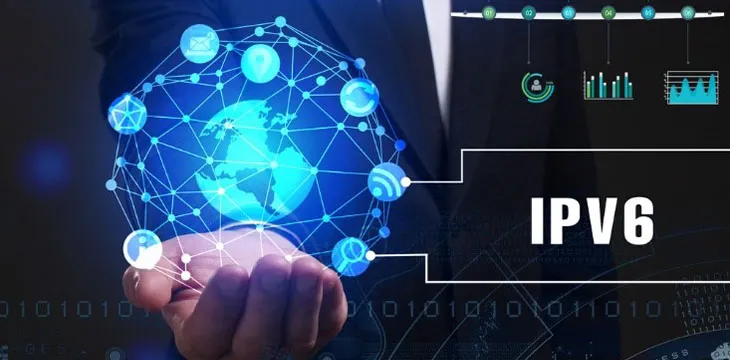|
Getting your Trinity Audio player ready...
|
While most of the digital asset world spent 2022 fretting over the diminishing dollar values of their coins, the Bitcoin SV (BSV) sector had its eyes on the future. One important future development is the world’s adoption of IPv6, an improved version of the Internet’s base protocol that remains unseen to most users but could bring significant improvements to payments, machine transactions, data collection and verification, and security.
2022 wasn’t the year everyone in Bitcoin started to enjoy the benefits IPv6 will bring to the network, but it was the year most of us first became aware of them. This was thanks to a communications and lobbying effort over the past year by Dr. Craig S. Wright, IPv6 Forum President Professor Latif Ladid, standards bodies like IEEE, and other representatives from Bitcoin development teams like nChain‘s Owen Vaughan, and Alessio Pagani, and Elas‘ Brendan Lee.
They have spent much of 2022 appearing at in-person events and online seminars to talk about how easily IPv6 can integrate with the Bitcoin protocol. As well as CoinGeek’s Global Blockchain Convention in Dubai in May, there have been events in Morocco, Japan, Oman, Canada, Saudi Arabia, and the United Kingdom
For his efforts, Dr. Wright was inducted into the IPv6 Forum’s Hall of Fame in December 2022.
“I am delighted to have been included in this list of experts. IPv6 will enable the infrastructure to transform traditional ‘crunchy shell’ firewalls and assign policies between individuals allowing the Internet’s early promise of global peer exchange. With micropayments added through Bitcoin and the advances made possible through IPv6, the Internet is set to radically transform how people and companies trade and interact,” Dr. Wright said.
CoinGeek itself, as well as the websites for the Bitcoin Association and nChain, all moved to IPv6 servers in August (after all, those promoting an idea should practice what they preach).
2022 was actually the tenth anniversary of the Internet Society’s “World IPv6 Launch,” a campaign to speed up IPv6 adoption. Though progress has been relatively slow, it’s definitely picked up over the past few years as awareness increases.
The Internet’s original vision, Bitcoin‘s original vision
It was always intended for every device connected to the Internet to have its own unique address, and Satoshi Nakamoto designed Bitcoin with that eventuality in mind. The original Bitcoin protocol included a means to send Bitcoin to another user via their IP address, but BTC Core developers deprecated this feature a few years later in 2011, finding no use for it. The Bitcoin “public key,” derived from a hash of the private key, became the de facto standard for sending payments instead—limiting the potential for what Bitcoin could do. Those limitations are now gone on BSV but still exist on BTC.
There was definitely a lack of foresight in removing IP address-based transactions. However, the slow adoption of IPv6 in favor of the old IPv4 across the world in general probably contributed to it. There are barriers to adoption, including the need to replace older hardware, education, the cost of training staff, and reconfiguring networked devices.
The world actually ran out of new unique IPv4 addresses in January 2011 (there were only 4.3 billion of them), but has kicked the can down the road along with workarounds such as NAT (network address translation) that allows multiple users to “share” public IP addresses. The average internet user is unaware of what’s happening on the backend, but IPv6 opens up a universe of new opportunities for developers- and especially Bitcoin developers.
Every device on the Internet in the future can have its unique address and transact directly with any other device, from desktops and mobiles to rudimentary IoT sensors. That alone is a major advancement, setting the scene for a fully automated micropayment economy. Dr. Wright has also talked about developing broadcast and revokable encryption, provable ownership of information, and validating private data on the Bitcoin network without going through Silicon Valley-controlled hubs.
IPv6’s multicast address functionality means a transaction can be sent directly to nodes on the Bitcoin network instantly, eliminating the need for every transaction to be broadcast to the entire network. More efficient data packet headers in IPv6 can move the propagation of Bitcoin transaction-related data to deeper layers of the network, making it faster. With exponential growth in unique addresses, the Internet also becomes more secure as hackers can no longer “sniff” known addresses for security holes. There are simply too many of them to try.
According to Google’s data, at the close of 2022, native-level IPv6 adoption is just under 45% of the Internet (in 2017, it was still around 20%). Countries leading the way include the United States, France, Canada, Brazil, India, Uruguay, France, Germany, Greece, Saudi Arabia, India, Malaysia, and Japan.
Bitcoin BSV is perhaps the only part of the blockchain world that still values technological possibilities over price speculation. For many of us, this is the reason we became interested in Bitcoin in the first place, and it’s refreshing to find a group of people still committed to that original vision.
Watch: Dr. Craig Wright keynote speech at GBC22, A Better Internet with IPv6 and BSV Blockchain

 06-30-2025
06-30-2025 





